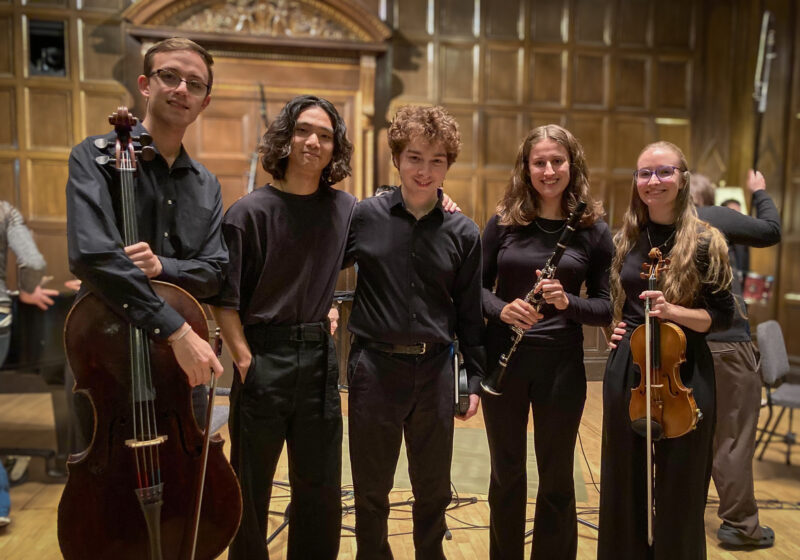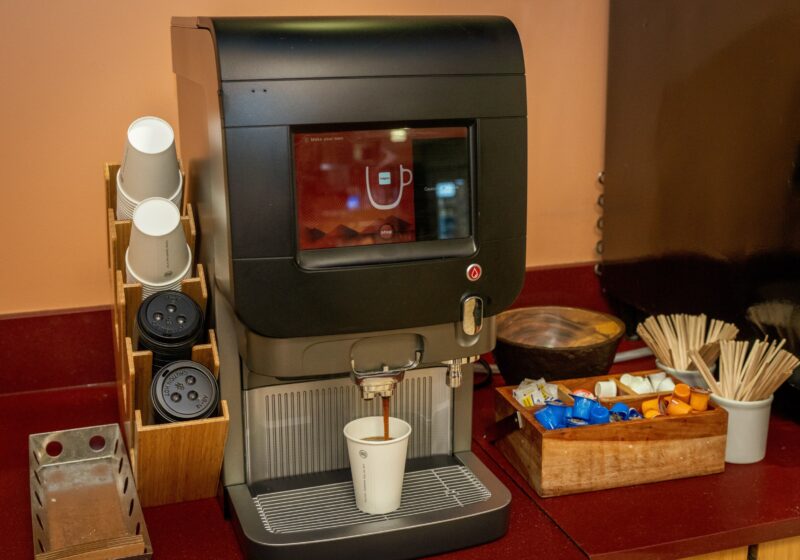For many musicians, endless hours spent in the practice room can take a serious toll on their bodies.
This can range anywhere from general muscle fatigue to permanent wrist damage. We all know at least one person who has had to take extended time away from their beloved instrument to let their body heal.
However, few people are fully aware of the variety of services that our school provides with the Eastman Wellness Initiatives to treat ? and prevent ? such problems.
Prior to the Eastman Wellness Initiatives, which came into existence three years ago, musicians at Eastman had to travel to the River Campus to receive care for physical problems related to extended periods of playing. The problems with this system were two-fold. First, there weren’t specialists at the River Campus trained to work specifically with musicians. Second, the inconvenience of traveling to the River Campus led few musicians to seek the treatment they really needed.
The Eastman Wellness Initiatives were created in response to these problems. There are three main components to this program ? clinical assistance, research and education.
The clinical component provides care and assistance for musicians who have sustained some sort of performance related injury. The research part surveys incoming students and re-surveys them when they graduate to better scientifically understand who gets injured and why. The educational component provides a range of services for all students, with the aim of teaching prevention and better equipping students in case problems do arise.
It is the “educational” aspect of this program that could be most useful to the average music student at Eastman.
“The only defense we can give people is education,” said Susanne Callan-Harris, coordinator of the Eastman Wellness Initiatives.
Currently, an unusually low number of people are signing up to participate because not everyone is aware of the services that exist.
With juries coming up ? they’re closer than you think ? these offerings could be of particular use to help ward off the physical harm that is caused by over-playing and extra stress.
Here are some of the programs, services and classes that are being offered as part of the Eastman Wellness Initiatives.
Unwind with yoga
Free yoga classes are offered every Tuesday at 4:00 and 5:15 in the TV lounge of the Student Living Center. Run by Ann Thompson, these classes focus on breathing and relaxation. While the power of learning to relax is helpful for all musicians, learning to be aware of one’s breathing is of particular use to wind and brass players and vocalists.
Loosen up with massage
Private full-body massages are available in the physical therapy clinic of the SLC, room B06, at $15 for 30 minutes or $25 for an hour. These sessions help isolate and relax the specific muscles that become strained as the result of endless hours playing the saxophone, cello, snare drum or [insert your instrument here]. This could also be a nice gift idea ? why not pay for a friend to get an hour massage for his or her birthday?
Check out Alexander Method
An actor, Frederick Mattias Alexander found that he was losing his voice as a result of tension in his neck and head muscles. He developed a system that aims to re-train the body to work with the least effort. In these sessions, run by Ivy Green, the student brings their instrument in. Green helps them relax their body while holding the instrument. Private sessions in Alexander technique are offered in the SLC at $10 per hour.
Or, try Mensendieck
Almost a hundred years ago, Dr. Bess Mensendieck found that other women had serious posture problems as a result of wearing corsets. After extensive work with men, women and children, she developed a kind of posture therapy that aims at improving posture through awareness.
“The mental and the physical are very connected in this technique,” said Thomas Bouber, who runs the sessions at Eastman. He takes students through a series of progressive exercises that develop consciousness of how one’s body feels and thus improving the way one holds and moves their body.
The sessions focus on building up these skills before the student brings in their instrument. Private sessions in Mensendieck therapy are offered in the SLC at $10 per hour.
Feldenkrais also offered
When Moshe Feldenkrais injured his knee in a soccer game back in the thirties, he found that the current surgeries and physical therapies available weren’t sufficiently helping him. To alleviate his pain, he developed his own method of posture therapy, which many use today.
The specialist puts pressure on different parts of the student’s body to see if the skeleton is supporting them or if it collapses. He also helps the student’s understanding of the body’s natural rotations, which is an outgrowth of Feldenkrais’ experience in martial arts. Through this, the student becomes aware of their posture, and thus can hold and move their body in a healthier way. Fred Onufryck, who runs the sessions at Eastman, has extensive experience working with musicians and has even treated a member of the Cleveland String Quartet. Private sessions in Feldenkrais therapy are offered in the SLC at $10 per hour.
Sign up for the message, Alexander, Mensendieck, and Feldenkrais sessions in the Dean of Students Office.
Equipment
A selection of playing stools, neck straps, pads, chin rests, and other such equipment are available in the physical therapy clinic in the SLC for students to try out, free of charge. The hope is that students will try out the gear and find something that helps to ease them while they play.
Faculty involvement
At the request of a studio teacher, Callan-Harris can come into the studio along with a specialist of the teacher’s choice ? for example, an Alexander specialist ? and show the students techniques geared toward their particular instrument that will help warm up their muscles and relax them while they play.
Courses at Eastman: A course was created for the Arts Leadership Program called “Keys to Healthy Music.” The class is a survey of different types of injury prevention and physical therapies that apply to musicians.
Other: Some programs are offered on a seasonal basis, such as the Walking Program and the Stretch and Strengthening Class. The Walking Program is a course of one mile that starts ends at the dorm, and hits points of interest along the way. The Stretch and Strengthening Class helps students to develop their own routine of exercises to loosen their muscles.
Grabowski can be reached at jgrabowski@campustimes.org




